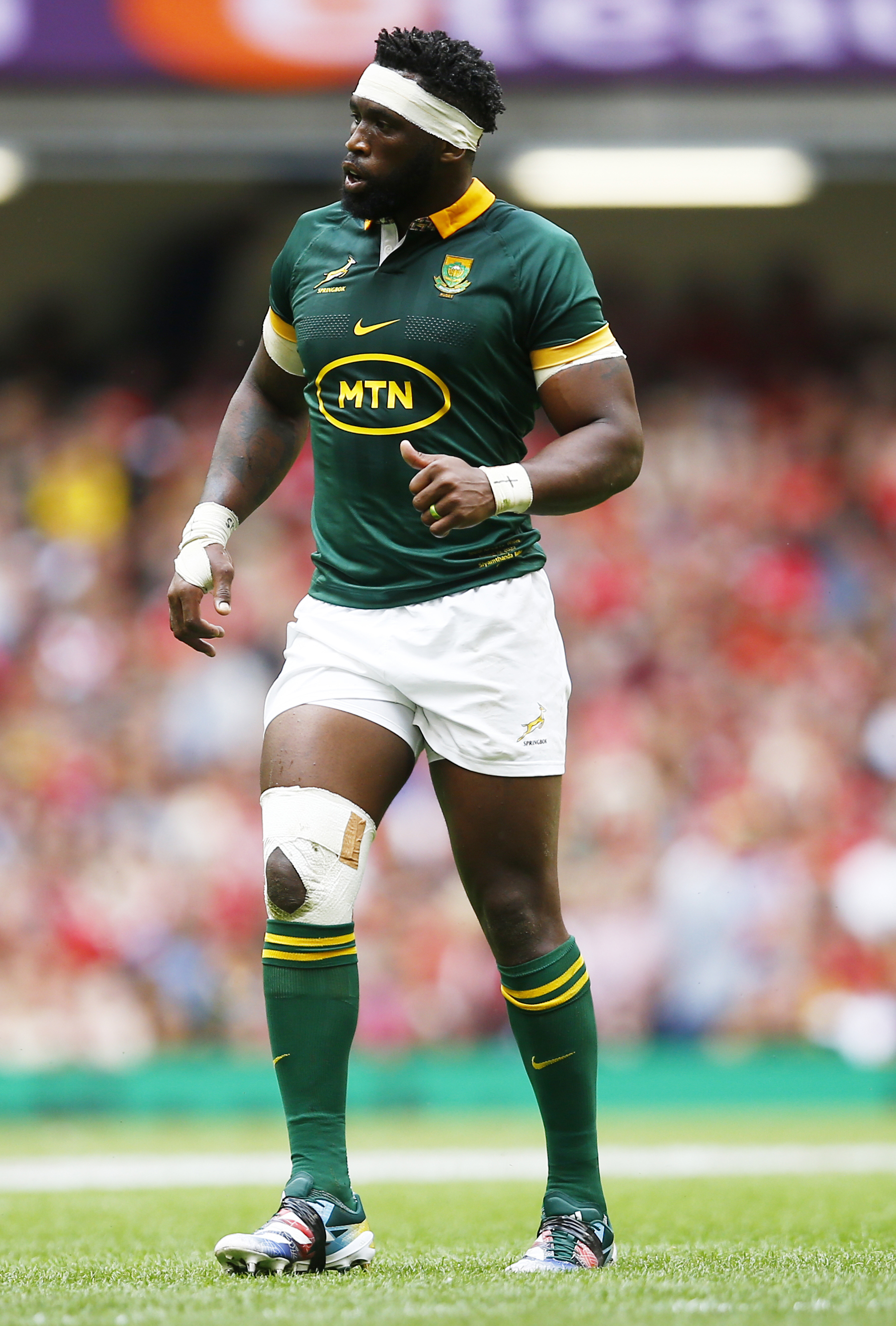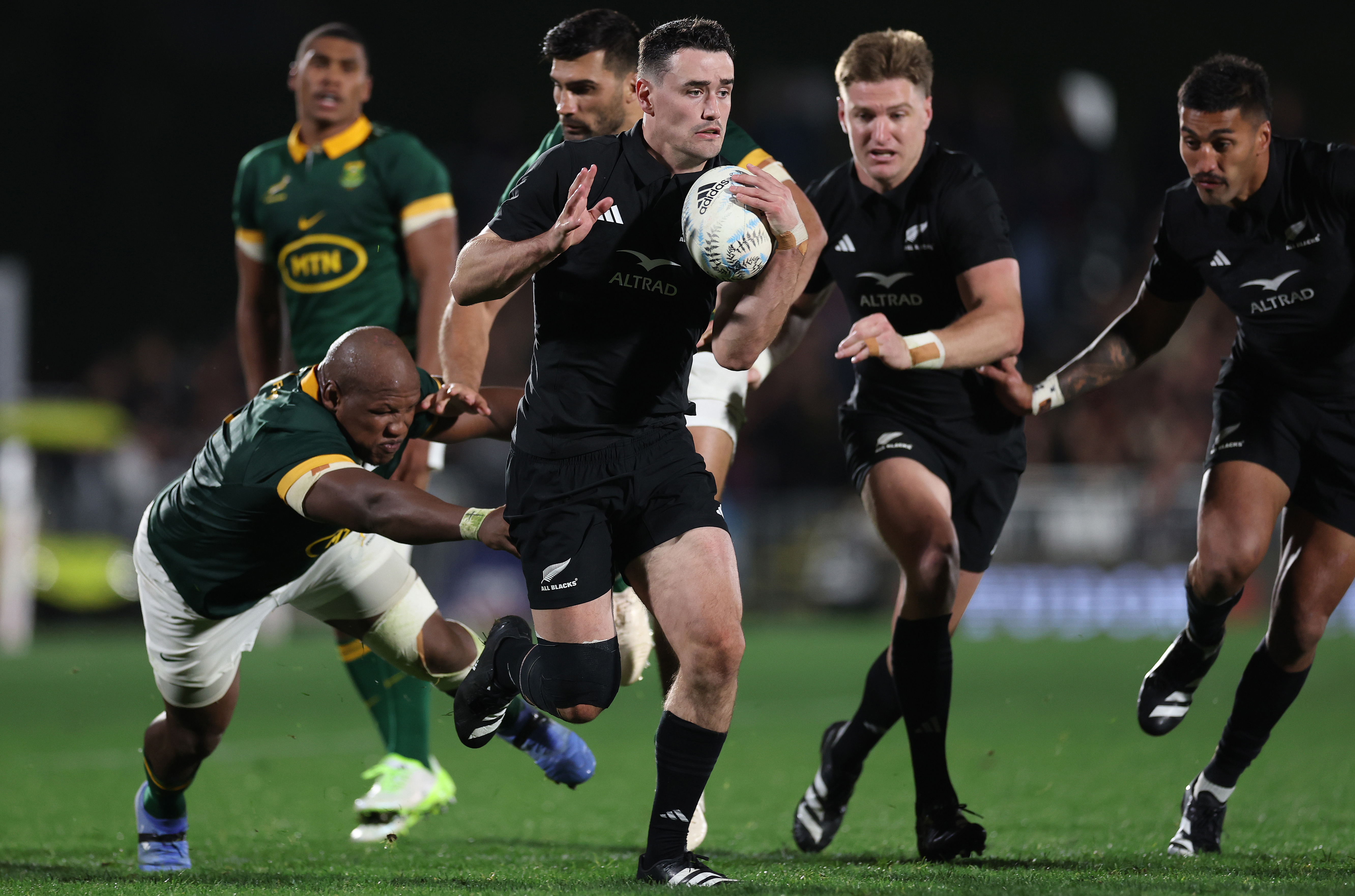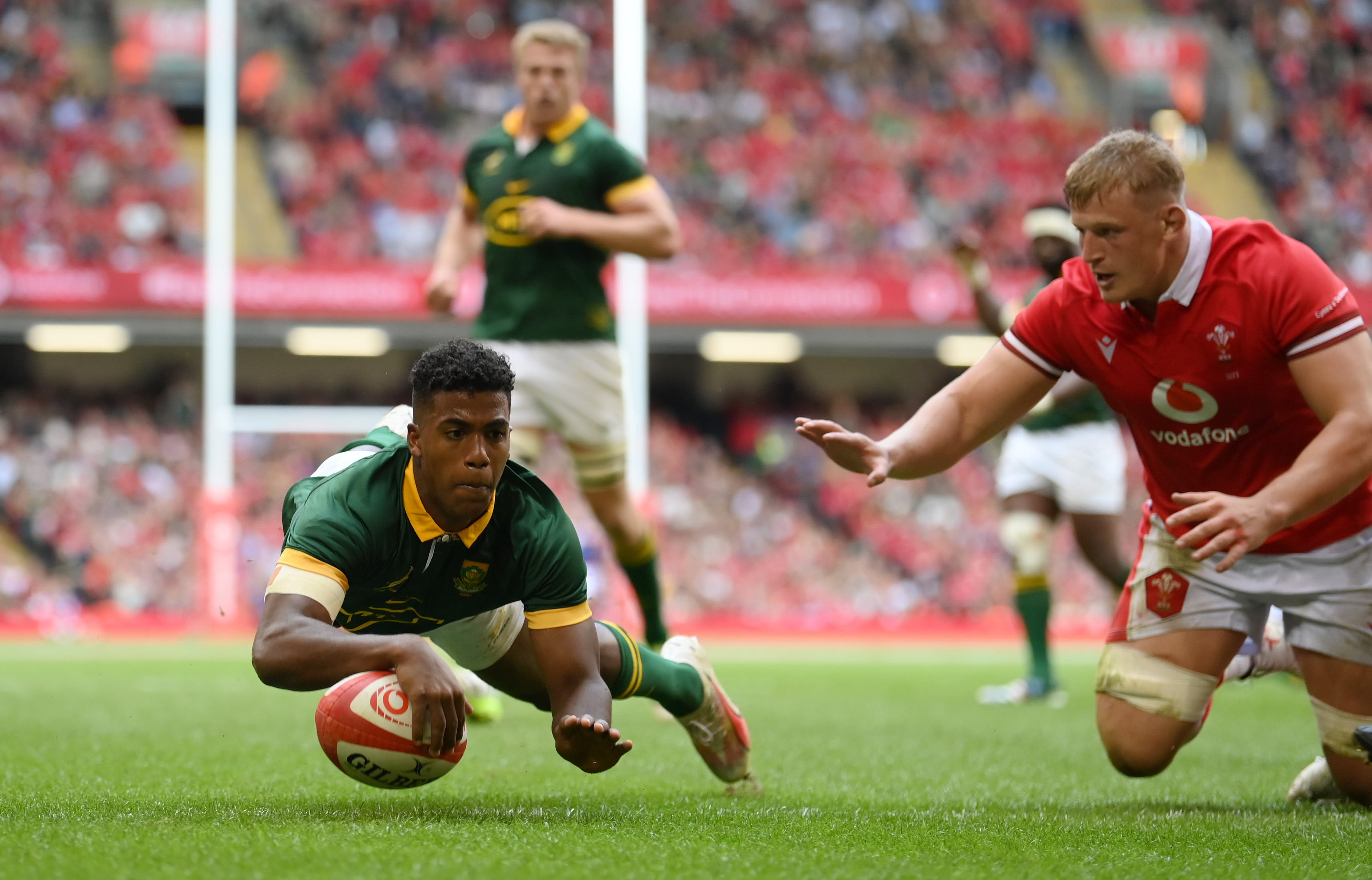It’s definitely the last match for both sides before the start of Rugby World Cup 2023 (RWC 2023) in France on 8 September.
It could be the last time Jacques Nienaber coaches against the All Blacks, because there is no guarantee the old foes will meet at RWC 2023, although they could.
Similarly, it could be the last time All Blacks coach Ian Foster matches his wits against the Boks since he is moving on after the World Cup, regardless of whether New Zealand wins or not.
It could be the last time a great player such as Duane Vermeulen, who is almost certain to retire after RWC 2023, plays against the men in black.
And perhaps most significantly for most rugby followers it could be the last time the Springboks and the All Blacks meet in their traditional colours.
Colour-blind policy
If they clash at RWC 2023, which is a possibility in the quarterfinal stage, or even in the final, one team will be required to wear an alternative strip.
That’s because World Rugby, issued a decree in April this year, which Daily Maverick revealed, that in future all of their sanctioned tournaments will accommodate people with colour blindness.
World Rugby has made it policy to accommodate people who suffer from colour vision deficiency (CVD), more commonly known as colour blindness.
According to research published by World Rugby, about 8% of males and 0.5% of females suffer from red/green colour-blindness – the most common manifestation of the condition.
“The risk of being colour blind varies with ethnicity and red/green types of colour blindness are more common in people of North American and European descent,” the World Rugby document on colour-blindness noted.
“The reasons for this are not yet fully understood. Scandinavian men have the highest chance of being colour blind (more than one in 10), while people from sub-Saharan Africa and indigenous populations have the lowest chance.”
Read more in Daily Maverick: Injuries dent critical Springbok squad RWC armour as Am, Pollard and De Jager miss out
The South African Rugby Union (Saru) was unhappy about the policy at the time and remains uncomfortable with it, but at RWC 2023 it will have no choice but to toe the line.
Although the All Blacks and Springboks are set to meet in the Rugby Championship in 2024, which does not qualify as a World Rugby event, and therefore not subject to this ruling, there is a feeling that they will be pressured to adhere to the guidelines.
The old rivals have managed to compete against each other in their traditional kits without issue for a century, while a poll Daily Maverick ran after the initial story was telling.
Out of 582 respondents, 554 believed the policy to be unnecessary. Anecdotally, many people claiming to have CVD, opposed the policy.
The World Rugby study quoted in its documentation to support the policy change appears to have come from a study of white people only. The prevalence of CVD among races that aren’t white is lower, and among the black population it’s only about 1.4%, according to one study.
Perhaps players who suffer from CVD struggle with red/green colour blindness during a game or training, which former Scottish international Chris Paterson explained in official World Rugby correspondence. But it’s a small sample for what is actually a big issue for rugby unions.
 Siya Kolisi during the Rugby World Cup 2023 warm-up match against Wales at Principality Stadium in Cardiff on 19 August 2023. (Photo: Steve Haag / Gallo Images)
Siya Kolisi during the Rugby World Cup 2023 warm-up match against Wales at Principality Stadium in Cardiff on 19 August 2023. (Photo: Steve Haag / Gallo Images)
In practical terms for Saru and New Zealand Rugby, and all teams, it has a major impact on tradition, on marketing and on fan experience.
International rugby still remains the pinnacle of the sport and team colours and kit designs are central to rugby’s identity. Being forced to change colours for a tiny percentage of the population and an even tinier percentage of rugby followers within that group, many of whom have said on various platforms that it’s unnecessary, is strange.
Rugby match
Against this backdrop there is a rugby match taking place at Twickenham with many subplots at play.
And as South African rugby entrenches itself in the northern hemisphere through club commitments in the United Rugby Championship, the Boks playing at Twickenham could become a more regular occurrence if entry into the Six Nations happens. And it might, as soon as 2025.
While the Twickenham clash between two southern hemisphere rivals is unusual, it might become less so in future.
Growing the game is essential (traditional kits might help in this regard) and taking big fixtures to great arenas around the world could become part of the future landscape.
Bok skipper Siya Kolisi recognises the potential of fixtures like this.
“It’s something that could be done more regularly in future because yes, we want to keep doing what we do well and reward our longtime fans, but we also want to grow the game,” Kolisi said.
“We want to go to places where people don’t get to see us live. A game of this nature is important. It’s great, particularly in a city like London where you know there are a lot of South Africans. How do they get to see us most of the time other than on TV?
Read more in Daily Maverick: Springboks’ and All Blacks’ new kit designs create a dazzling stir — just as intended
“An opportunity like this is huge. It works for us and for them. Hopefully, it’s something worth exploring, gaining new fans that will have a bigger interest in the South African game in general.
“Anything that can bring people in is worthwhile and we’ve seen it with the interest for this game alone. Maybe in future we can have a game day with four teams playing at one stadium. I don’t know.”
Key battles
Obviously the most important is winning and losing. It’s the Springboks against the All Blacks, and that always matters. The match is happening on the eve of the World Cup, and whether teams like it or not, it’s a chance to build momentum.
The Boks also haven’t won a really big match in a long time. They lost to France and Ireland on tour last November and lost 35-20 to the All Blacks in Auckland last month.
Despite recent big wins over Australia and Wales, and two less-convincing victories over Argentina, the Boks need to take a big scalp with RWC 2023 Pool matches against Scotland and Ireland looming.
 The elusive All Black wing Will Jordan will be a major threat when the sides clash at Twickenham. He scored a try against the Boks at Mt Smart Stadium in Auckland in July. (Photo: Phil Walter / Getty Images)
The elusive All Black wing Will Jordan will be a major threat when the sides clash at Twickenham. He scored a try against the Boks at Mt Smart Stadium in Auckland in July. (Photo: Phil Walter / Getty Images)
Outside of the result, there are questions over tactics and players. Will Manie Libbok produce an 80% goal-kicking performance and can Canan Moodie hold his own at outside centre?
In the 55 Tests Jacques Nienaber and Rassie Erasmus have presided over since 2018, Lukhanyo Am and Jess Kriel have started 53 between them. Damian de Allende started at outside centre in the other two.
It’s the key backline defensive organising position, which places another huge responsibility on the 20-year-old Moodie. But it’s also understandable why Nienaber has done this now.
First, he needs to protect Kriel as the only fit centre in the squad, and second, with Am still injured and not in the World Cup squad currently, he needs to find a back-up.
“This fixture is always intense, physical, and the magnitude is huge. People want to come and experience it at the stadium,” Kolisi said.
“This is not a friendly. In fact, we’ve never had a friendly against them. It’s going to be a big physical battle, and we are excited about it.
“We’re not going to hold back; we’re going to go all-out for the game. I mean, 82,000 people have paid to come see us. It’s no time to hold back. I don’t want to disappoint people who’ve paid a lot of money to come watch this game.” DM
Teams:
South Africa
15 Damian Willemse, 14 Kurt-Lee Arendse, 13 Canan Moodie, 12 Andre Esterhuizen, 11 Makazole Mapimpi, 10 Manie Libbok, 9 Faf de Klerk, 8 Duane Vermeulen, 7 Pieter-Steph du Toit, 6 Siya Kolisi (captain), 5 Franco Mostert, 4 Eben Etzebeth, 3 Frans Malherbe, 2 Malcolm Marx, 1 Steven Kitshoff.
Reserves: 16 Bongi Mbonambi, 17 Ox Nche, 18 Trevor Nyakane, 19 Jean Kleyn, 20 RG Snyman, 21 Marco van Staden, 22 Cobus Reinach, 23 Willie le Roux
New Zealand
15 Beauden Barrett, 14 Will Jordan, 13 Rieko Ioane, 12 Jordie Barrett, 11 Mark Telea, 10 Richie Mo'unga, 9 Aaron Smith, 8 Ardie Savea, 7 Sam Cane (captain), 6 Luke Jacobson, 5 Scott Barrett, 4 Sam Whitelock, 3 Tyrel Lomax, 2 Dane Coles, 1 Ethan de Groot
Reserves: 16 Samisoni Taukei'aho, 17 Tamaiti Williams, 18 Fletcher Newell, 19 Josh Lord, 20 Tupou Va'ai, 21 Dalton Papali'i, 22 Cam Roigard, 23 Anton Lienert-Brown
Referee: Matthew Carley (England)
Kick-off: 8.30pm (South African time)




 The elusive All Black wing Will Jordan will be a major threat when the sides clash at Twickenham. He scored a try against the Boks at Mt Smart Stadium in Auckland in July. (Photo: Phil Walter/Getty Images)
The elusive All Black wing Will Jordan will be a major threat when the sides clash at Twickenham. He scored a try against the Boks at Mt Smart Stadium in Auckland in July. (Photo: Phil Walter/Getty Images) 